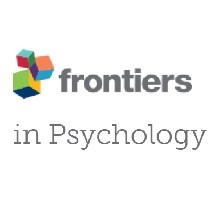
دانلود مقاله نگرش، انگیزش مدرسه و کارکردهای اجرایی پیش دبستانی در زمینه مهدکودک
چکیده
مقدمه
مطالب و روش ها
نتایج
بحث
نتیجه گیری
منابع
Abstract
Introduction
Materials and Methods
Results
Discussion
Conclusion
References
چکیده
سیاست اروپا در دهه گذشته شاهد تغییرات و نوآوری هایی در زمینه آموزش پیش دبستانی در دوران کودکی بوده است که به اشکال مختلف در سیاست های تک تک کشورهای اتحادیه اروپا منعکس شده است. در چارچوب سیاست پیش دبستانی چک، نوآوری ها و رویکردهای خاصی در زمینه آموزش کودکان خردسال اجرا شده است، مانند معرفی آموزش اجباری پیش دبستانی قبل از ورود به دبستان از سال 2017، تاکید بر آموزش فراگیر، شرایط برابر در آموزش و توانمندسازی با حمایت دولت. تنوع در مفاهیم آموزشی مهدکودک ها هدف مطالعه ما ارزیابی تأثیر سیستمهای آموزشی مختلف پیشدبستانی در جمهوری چک در زمینه متغیرهای روانشناختی بود که منعکسکننده نتایج منتخب کودکان است که ممکن است به پیشرفت مدرسه در آینده کمک کند. متغیرهای مورد بررسی نگرش، انگیزه و کارکردهای اجرایی کودکان سال آخر آموزش پیش دبستانی بود. مقایسه ای بین برنامه آموزش سنتی پیش دبستانی و به اصطلاح انواع جایگزین آموزش پیش دبستانی، مانند مونته سوری، والدورف و مدارس مذهبی انجام شد. کل نمونه به چهار زیر گروه تقسیم شد، یعنی گروهی از کودکانی که در مهدکودک های سنتی (731، 84.9٪)، مذهبی (65، 7.5٪)، مونته سوری (35، 4.1٪)، و والدورف (30، 3.5٪) مهدکودک ها حضور داشتند. برای تعیین داده های تجربی از روش های تحقیق زیر استفاده شد: پرسشنامه نگرش، مقیاس انگیزش عملکرد مدرسه و پرسشنامه رتبه بندی رفتار عملکرد اجرایی (BRIEF). نتایج بررسی ما نشان می دهد که نوع مهدکودک تحصیلی بر میزان انگیزه عملکرد مدرسه، نگرش به مدرسه و همچنین کارکردهای اجرایی کودک تأثیر معناداری دارد. تفاوت معنی داری بین انواع مختلف مهدکودک های حضوری در متغیرهای پایش شده مشاهده شد.
توجه! این متن ترجمه ماشینی بوده و توسط مترجمین ای ترجمه، ترجمه نشده است.
Abstract
European policy has seen a number of changes and innovations in the field of early childhood preschool education over the last decade, which have been reflected in various forms in the policies of individual EU countries. Within the Czech preschool policy, certain innovations and approaches have been implemented in the field of early children education, such as the introduction of compulsory preschool education before entering primary school from 2017, emphasis on inclusive education, equal conditions in education and enabling state-supported diversity in the education concepts of kindergartens. The aim of our study was to assess the influence of various preschool education systems in the Czech Republic in the context of psychological variables reflecting selected children’s outcomes which may contribute to future school achievement. The monitored variables were the attitudes, motivations and executive functions of children in the last year of preschool education. A comparison was made between the traditional preschool education program and the so-called alternative types of preschool education, such as Montessori, Waldorf and religious schools. The total sample was divided into four subgroups, namely a group of children attending traditional kindergartens (731, 84.9%), religious (65, 7.5%), Montessori (35, 4.1%), and Waldorf (30, 3.5%) kindergartens. To determine empirical data, the following research methods were used: Attitude Questionnaire, School Performance Motivation Scale, and Behavior Rating Inventory of Executive Function (BRIEF). The results of our survey show the fact that the type of kindergarten attended has a significant effect on the child’s level of school performance motivation, attitudes toward school as well as executive functions. Significant differences were found between the different types of kindergartens attended in the monitored variables.
Introduction
The policy discourse in EU countries around early childhood education has changed significantly over the past twenty years, from childcare to education, from childcare as a policy mechanism to increase women’s employment to the focus on children’s outcomes. Thus, the result was an increased acknowledgment of the role of preschool education in “laying the foundations for learning at school,” and also emphasizing the good quality, effectiveness and inclusiveness of early education as being beneficial for all children. Countries within the EU have adopted such a policy approach and made changes in congruence with the recommendations of the EU Council. However, there are still discrepancies between countries and/or regions within the European landscape influenced by different factors, such as specifics of the cultural and social context, different educational systems, parameters of practice for preschools, different teacher education quality, etc. (Ou et al., 2004; Yoshikawa et al., 2013; McCoy et al., 2017; Council of the European Union, 2019; Alexiadou and Altmann, 2020). In the context of the Czech preschool policy, innovations and approaches were implemented in early children education including for example the introduction of compulsory 1-year preschool education before enrollment in elementary school (from 2017), emphasis on inclusive education and equal conditions in education as well as state-supported diversity in kindergarten education systems. However, there is a lack of knowledge about the influence of kindergarten including different kindergarten education systems on later school achievement, not only in the Czech Republic but also in other countries.
Conclusion
This study provides a relatively scarce comparison of the factors that can influence future school achievement in a comprehensive set of different types of traditional and alternative kindergartens. In conclusion, the findings showed only minimal differences in the measured predictors of later school achievement (children’s attitudes toward kindergarten, executive functions, school performance motivation) between the different types of kindergartens in the Czech Republic. Irrespective of the initial philosophy of the approach to preschool education and the different way of conducting education, children’s development is very similar. At the same time, different types of kindergartens have their own specific strengths. Montessori education is perceived most positively by children and promotes achievement-oriented executive motivation, while the Waldorf approach is characterized by the best results in terms of executive development. Thus, although all types of kindergartens included in our study are perceived positively by children and develop children sufficiently in all areas related to future executive motivation, alternative preschool education appears to be more successful in preparing children for the future.
